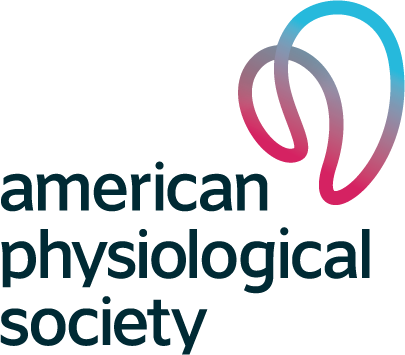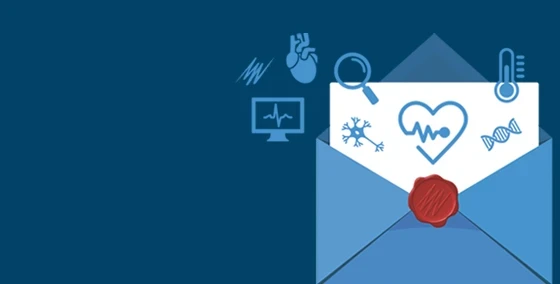Dr. Bridget Ford, Assistant Professor in the Department of Biology at University of the Incarnate Word in Texas, is the winner of the 2024 ADInstruments Macknight Innovative Educator Award!
In conjunction with the American Physiological Society (APS), this award is presented annually to an educator who incorporates innovative teaching techniques and utilizes technology to deliver engaging physiology courses at undergraduate or graduate levels.
Our team would like to extend our congratulations to Dr. Bridget Ford, as this year’s recipient! We had the opportunity to catch up with Dr. Ford and learn more about her passion for teaching, her plans to build out an upper-division anatomy and physiology lab with our online learning platform Lt, and what motivates her spirit of innovation.
An early spark of interest - the journey to teaching and mentoring
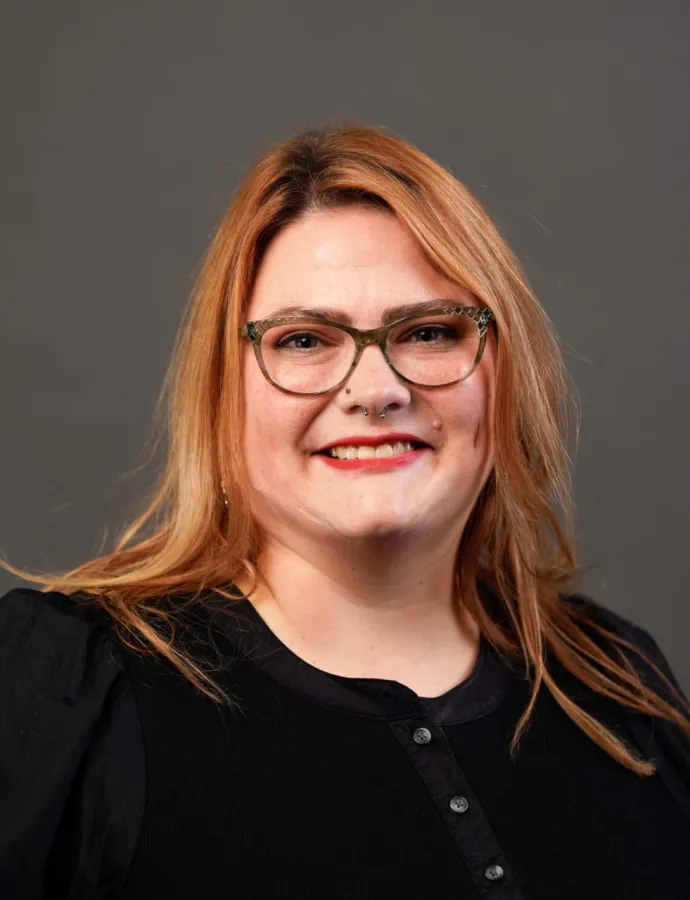
Dr. Bridget Ford
Dr. Ford was drawn to both teaching and science from an early age. As a kid, she spent time exploring the natural world around her, collecting rocks and growing her bug collection. She also recalls playing “school” quite a bit with her friends, assuming the role of teacher often. These childhood hobbies would cultivate a deep passion for science, and helped to lay out a clear path for her when she went on to study Biology at St. Mary’s University in Texas.
During her undergraduate studies at St. Mary’s University, she honed in on her love for teaching. In her sophomore year, she started tutoring on top of a research internship - a choice that would highly influence her decision to become an educator: “During those experiences, it felt like I was doing something that I was really passionate about - teaching the students, helping them out with problems, leading them to the correct answer. THAT experience particularly was when I decided, ‘Okay, this is what I want to do’’”.
With the help of a mentor, she was able to combine both her research and teaching interests as she went on to attend graduate school at the University of Texas Health Science Center at San Antonio. Dr. Ford took an adjunct position at her alma mater to gain vital experience teaching, all while pursuing her Ph.D. in Molecular Medicine. Despite long lab hours and a research-intensive environment, she never lost sight of her passion for teaching. “Throughout all of that, I always felt like I was most comfortable when I was in the classroom,” she notes. “I do feel like my path has always been that way, heading toward teaching and mentoring.” After completing her graduate studies and obtaining experience as an adjunct professor, she eventually went on to assume a full-time faculty position at the University of the Incarnate Word (UIW).
Electricity in the classroom
In her current role at UIW, Dr. Ford serves as the coordinator for two introductory anatomy and physiology courses.
As part of her teaching, Dr. Ford emphasizes the importance of applied learning to help connect concepts for students and achieve that infamous “light bulb” moment. The enthusiastic energy displayed by students when they are engaged is also highly motivating for her as an educator. When asked what she finds most enjoyable about teaching, she smiles and shares:
“The excitement that I can see the students get when we start talking about something that they are really passionate about. And the fun thing about that is for every student, it’s going to be different! So you get that electricity and energy coming from the classroom so many times throughout the semester.”
Transforming with technology
Receiving the news of her win was a jaw-dropping moment for Dr. Ford. She recalls her surprise at the time: “I did not think I was going to win, not because I didn’t think that I was deserving, but it just seems like such a huge honor. It felt really good, I felt like the work that I’d been doing was getting recognized and that was really nice.”
Part of the work Dr. Ford put into action when she took over as the course coordinator for anatomy and physiology included a refresh of their existing material and implementation of new technologies. “For a very long time they were using paper labs, and students would just fill out worksheets. There wasn’t as much of a hands-on experience for them. It certainly didn’t use any type of technology, or at least any type that was updated. What we had was outdated and didn’t work very well, so it wasn’t really an option any more.”
That’s how she discovered the online learning platform Lt, which would end up being a game-changer for her and the students.
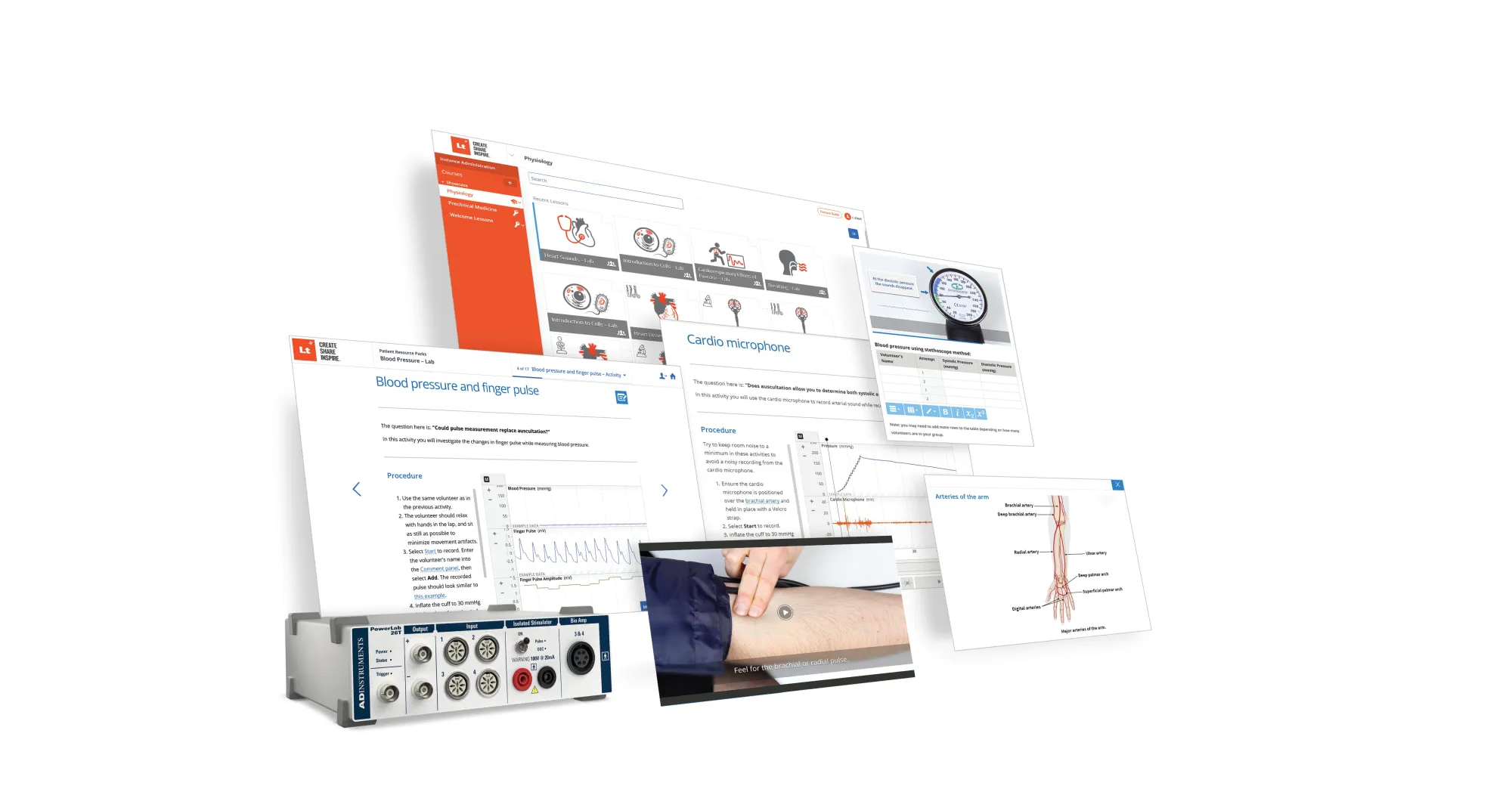
Lt can be combined with the PowerLab or Lt Sensors to teach human physiology and provide students with hands-on, active learning experiences.
Related: Powerful data: How Dr. Bridget Ford nurtures curious students using Lt’s online physiology labs »
“It has been transformative for us, for a lot of reasons. I remember when I was first introduced [to Lt], before the pandemic actually happened. My wheels were already turning and thinking how exciting it would be to have this type of experience for our undergraduate students.”
Dr. Ford first adopted Lt while teaching online labs during the pandemic. She continuously worked to fine-tune the course and customize Lt’s existing content based on student feedback, until she was able to achieve a balanced yet appropriately challenging course that kept students engaged. When classes returned to campus, students were able to begin collecting their own physiological data for analysis by pairing Lt with Lt Sensors, which offered a truly hands-on experience.
“The sensors are a great option for students in the lower-division labs, as many have never had a science course before in college, so Anatomy and Physiology I might be their first lab course.” She explains how this can translate into an overwhelming experience for students, who are stepping into the lab for the first time and coming face-to-face with unfamiliar physiological recording equipment. The ease and simplicity of Lt Sensors help to make it a less frightening experience.
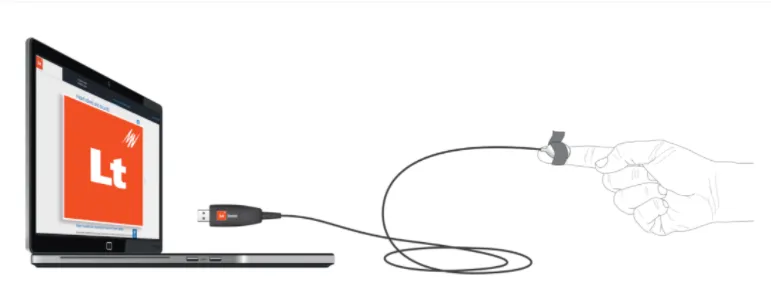
Lt Sensors connect via USB so that students can easily record their own data directly into Lt
“We are at the point now where it works really well with what they are doing in lecture and still allows them to have a really robust lab experience, but not in a scary way!...Handing them a USB that they can just plug into the computer, it’s easy and ready-to-go. That has been really important in maintaining the students’ interest and making them feel comfortable while they are in the lab.”
Vision for the future
Looking to the future, Dr. Ford is beyond excited and hopes to use the award as an opportunity to build out an upper-division lab course, something that she believes will greatly benefit her students.
“I was super excited about being able to work on the lab that I’ve been wanting to build! With budget constraints and stuff like that, it’s really difficult to do things exactly when you want to do it. This was really a huge moment where I thought, ‘Oh my gosh, I’m going to be able to do an upper-division lab!’ which is something that we’ve not had in our department. We really don’t have many upper-division lab experiences for our students and I think that’s something that’s needed.”
While this is still in very early planning stages, she envisions that the upper-division course will allow students to dive deeper into the material and demonstrate how different body systems integrate through the use of recording equipment.
Words of advice for aspiring innovators
Dr. Ford’s passion for teaching shines bright, and she exemplifies the spirit of innovation honored by the Macknight Innovative Educator Award. The challenges of burnout, budget restraints, and lack of support take a toll on many in today’s teaching environment. Reflecting on these challenges, Dr. Ford discusses how challenging it can be for both educators and students alike.
“All of that stuff makes it really difficult to stay excited all of the time. We are also dealing with students who are struggling with the same type of situation. Quite honestly a lot of the students we are getting now spent a large part of their first few years in high school online, and missed out on the experiences that they should have had. And, understandably so, a lot of them dealt with educators that were perfectly fine with them doing the absolute minimum, or less than, in order to just get them through.”
“But all of that being said, I think the students are very resilient and we are very resilient. Going in and getting energized when you enter the classroom, for me it’s enough to make me happy and to keep me satisfied. Even on the days when things aren’t going quite the way I wanted them to, the second I walk into the classroom I get re-energized and it excites me just like it did the first day I walked into a classroom.”
Congratulations once again to Dr. Bridget Ford! We look forward to seeing how you continue growing and developing your lab courses with the help of Lt!
The ADInstruments Macknight Innovative Educator Award provides the recipient with a $1,500 honorarium; complimentary advance registration to the APS annual general meeting; and a 1-year subscription to an ADInstruments software of choice.
